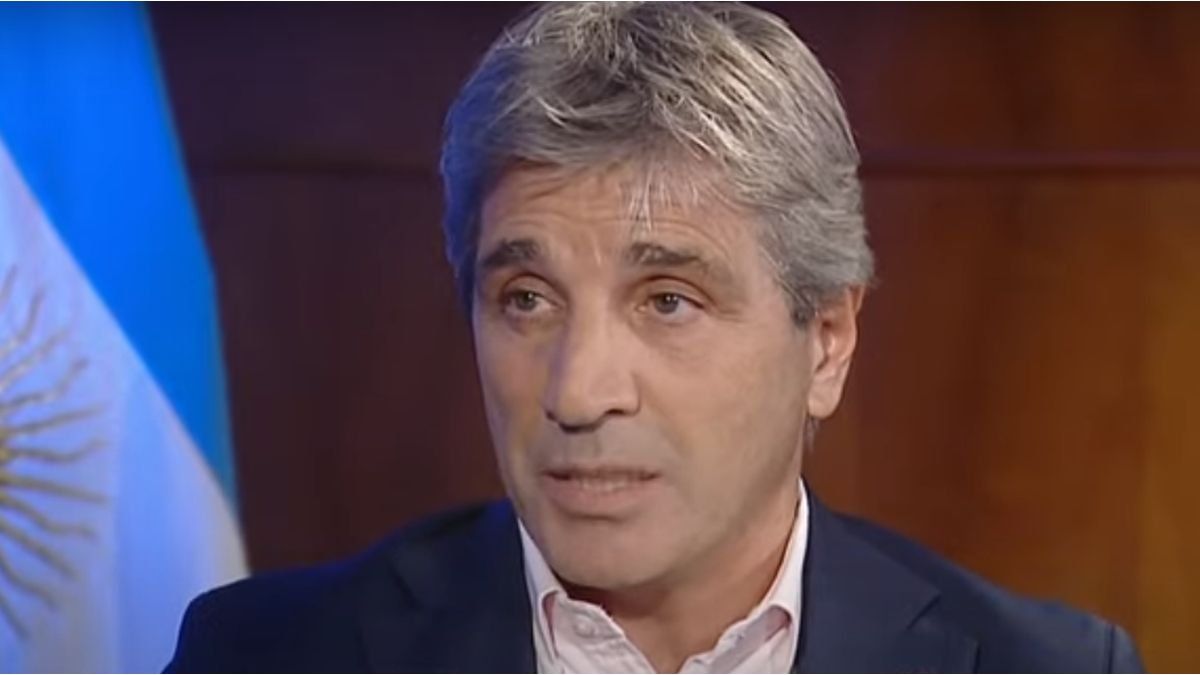The result of the rFebruary tax collection that the Ministry of Economy will announce in the next few hours toanticipates a moderation in the results of the national public sector for the period, which will not be as comfortable as what Luis Caputo was able to show in January. It would be due to a combination ofe fall of resources with increased expenses.
For example, the collection of February Income Tax fell almost 40% in real terms as indicated in the forms of the Ministry of Economy on federal tax sharing shipments. The brutal drop is due to the tax reform that was approved at the end of last year.
As will be remembered, almost all employees in a dependency relationship stopped paying the tax, and only a minority of less than 1% remained that continues with an annual schedular tax, for those who earn $2,340,000 per month. That move subtracted an important mass of resources not only from the national government but from the provincessince it is one of the pillars of co-participation.
arñaraz-reca.png
The other tax that is a pillar of the income of the national state, which is alsoe shared with the governors is the VAT. Private consulting firms estimate that it registered an increase of 3.5% in real terms.. This increase is not enough to compensate for the profit losses.
There is also another series of minor taxesIt has specific allocations that are shared non-automatically with the provinces, which show signs of strong deterioration, as highlighted in a report by the consulting firm Politkon Chaco.
“Among the other components of the co-participation, declines are again observed in the IInternal taxes (-27.5%) and in Other Shareholders (-39.4%)”, states the report which maintains that there are also resources “derived from the Personal Property Tax that fell 66.7%; those of the tax Liquid Fuels -77.1%; and those of the Monotax -54%”. The consulting firm that runs the economist Alejandro Pegoraron states that “Social Security VAT expanded 2.4%.”
In this context, taxes related to Foreign trade will compensate for the collapse of resources related to internal economic activity, which is in free fall due to the government’s adjustment plan. In January, tax collection was slightly positive, but if export duties and the PAIS tax are excluded, the rest fell 12%, according to Cohen Argentina estimates.
In February, by putting an end to the controversy over the co-participation of the PAIS Tax the government decided by decree to modify the 30% specific allocation component, which before that was given to social organizations (9%) and public works (19.5%), Now, of 70% the national governmentHe will keep almost 97.5% (70% + 27.5).
How are expenses in February?
On the spending side, the governmentor were you able to keep expenses down in February in the same way as in Januaryalthough he was giving signs that Its policy is to stop paying as much as it can and collect as much as is available. There are previous signs that the government is paying bills that were outstanding from January.
According to data from the consulting firm Analytica, in the first 18 days of February, accrued expenses decreased by 83% in real terms, while paid expenses decreased by 56.8%. While the total expense accrued for the first 18 days of February is $786,020 million, the expense paid was $963,024 million, which would imply that The expense accrued in January is being canceled.
The Economist Christian Buteler told Ambito that in February the government “could not maintain the liquefaction rate of January both in pension spending and public sector salaries.” That’s because inflation is falling.
Buteler estimated that Collection could have a sharp drop in real terms of 15% and the COUNTRY Tax could be lower than expected.
“When you cut spending the improvement is constant, when it is liquefied it is not,” he explained. For example, he warned that the government He did not send money to the Wholesale Electricity Market Administration Company (CAMMESA) and that the same money was transferred to national universities as last year without inflationary adjustment
Source: Ambito




